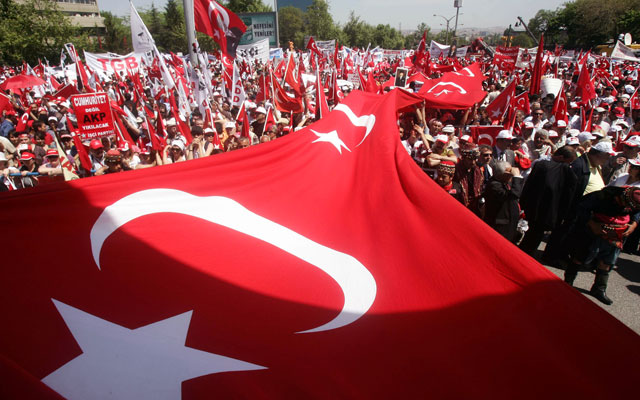Global markets are huffing and puffing and trying to blow the BRICs down. Some of the BRICs—Brazil, India, and China in particular, along with other emerging markets such as Turkey—are feeling the pinch as their economies weaken and currencies slide. This week, central bankers from Turkey and Brazil are considering policy options.
The source of emerging market trouble is under debate. Some emerging market leaders put the blame on others. They argue that the U.S. Federal Reserve’s quantitative easing programs have caused hot money to flow into their economies. Beginning to taper these funds, as the Fed announced it would do in early December, could destabilize their currencies and slow growth. Others, however, say that this slowdown is structural, a product of poor policy choices and the end of high commodity prices.
What are not controversial are the symptoms. Turkey, Brazil, and India have all been experiencing persistent current account deficits. This, coupled with an increased perception of emerging market risk, has caused money outflows, currency devaluations, and fears of inflation as countries struggle to meet trade commitments and prop up their currencies.
In some cases, such as Brazil and Turkey, addiction to short–term credit has compounded these symptoms. Both countries’ reliance on portfolio investment and bonds, instead of more stable foreign direct investment (FDI), has meant that investors can pull their money out of the country quickly in the face of political instability or slow growth. In both Brazil and Turkey, FDI as a percentage of gross domestic product is low compared to emerging market standards.
The policy prescription these countries undertake will be highly discussed, but in the end they should include structural reform and economic freedom. Heritage Foundation research on Brazil has found little credibility in the argument that the country’s woes are a result of the U.S. Federal Reserve. It seems more likely that structural deficiencies are to blame.
The same is true for India, China, and Turkey. All three countries rank poorly in The Heritage Foundation/Wall Street Journal’s Index of Economic Freedom, indicating there is ample room for pro-growth economic reforms. These types of reforms would help to attract FDI and wean emerging markets off risky, short-term money.
Right now it, looks like the BRIC economies are made of straw rather than brick, vulnerable to the slightest breezes in global markets. To recover, they need to reinforce the foundations of their economic houses by embracing economic freedom.
